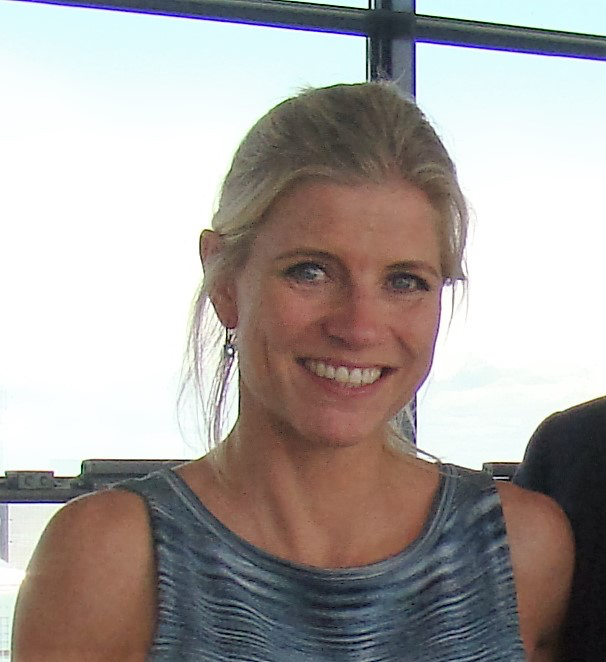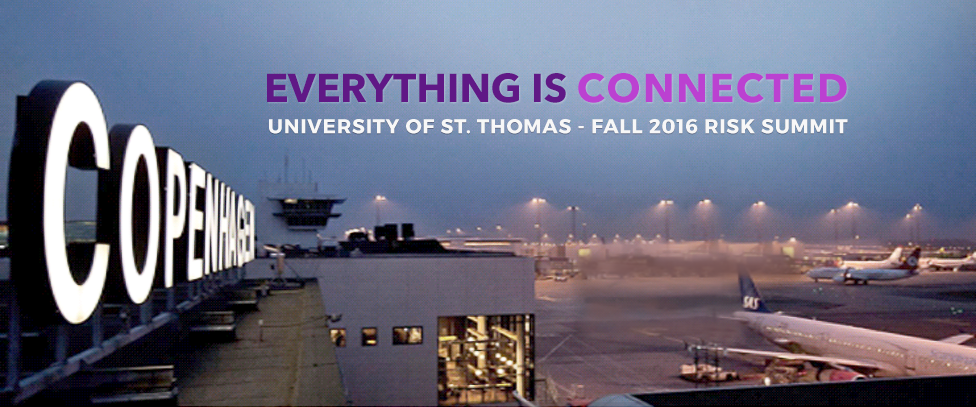
Kristine Raffel, group head of risk for Copenhagen Airports, will speak at the 2016 Fall Global Risk Summit on October 7.
Climate change, the Zika virus, refugees, the global banking system, terrorism - all these headline-grabbing issues fall into a category known as global risks, which is to say they are risks that are impervious to borders and are of sufficient scope and scale to require collaboration and cooperation within and across organizations as well as across public, private and non-profit boundaries. The key to understanding these risks is the fact that they are interconnected, meaning that issues in one part of the world travel quickly to the rest of the world. We call this attribute "contagion."
Recently, we spoke with Kristine Raffel, group head of risk for Copenhagen Airports (CPH) about this phenomenon. Her airport sits in a highly formalized global network, and is therefore highly exposed to the contagion problem: Volcanic activity in Iceland can disrupt transportation activity throughout the world; terrorism attacks can have wide-spread impacts everywhere.
What are the big challenges for global air transportation?
Kristine Raffel: In my view the main challenge for global air transportation is that most risks, and thereby what is most concerning to our customers, are “out of our hands." We aren't able to influence the root cause, timing, or severity of the risk in many cases. These challenges can happen overnight and our ability to react to them may be very limited. When we look at the typical threats for global air transportation they can be split into following four main areas:
- Climate change and severe weather conditions, including storms/hurricanes, monster rain/flooding, earthquakes/volcanoes/ash clouds. These are events we're not able to influence.
- International disasters and occurrences – pandemics, terrorist attacks, war, financial crises, etc. - which we are also not able to influence.
- Regulations within the aviation business, which we attempt to influence to some degree by dialogue with governing bodies and lobbying.
- Airlines decision/strategy to use the different regional and international airports as main hubs. These we actively influence to understand airline partner priorities and market CPH to satisfy their strategic needs as well as our own.
How are these challenges viewed at Copenhagen Airports?
Raffel: Today these challenges do not impact CPH operations airports in a high degree on a day-to-day basis. Our risk management team, in coordination with operational risk owners and leadership, have them registered as emerging risks, though with a low probability to occur. However, should these risks materialize, then they could have quite a big impact on CPH. Those risks that effect and change the customer behavior by reducing the willingness to use air transportation could result in a revenue loss and ultimately impact growth and strategic goals.
Interconnectivity (between businesses, industries, governments, or within a corporation's own business silos) seems to be a big issue crossing all boundaries. Why is it so difficult to address?
Raffel: This is complex and somewhat difficult to answer. I would say that the main reason why it is so difficult to address the issue of interconnectivity is due to the fact that the risks related to this are often very difficult to influence and our ability to react to them is limited, as mentioned above. In my judgment contingency planning becomes more critical when considering interconnected risks, both for immediate customer safety and transportation needs, as well as our business, to remain agile in turbulent times. Envisioning risk and response scenarios, documenting and even role playing helps to clarify goals, roles, and action steps needed by all stakeholders.
Kristine Raffel is a featured speaker at the Fall 2016 Risk Summit: The Challenge of Interconnectivity on Friday, October 7 and will also participate in events surrounding the launch Everything is Connected: Risk Leadership at Copenhagen Airports, a new case study written by Raffel, Patricia Stephan, and Peter Young, Ph.D. Visit the Summit's event page for more information and to register.







